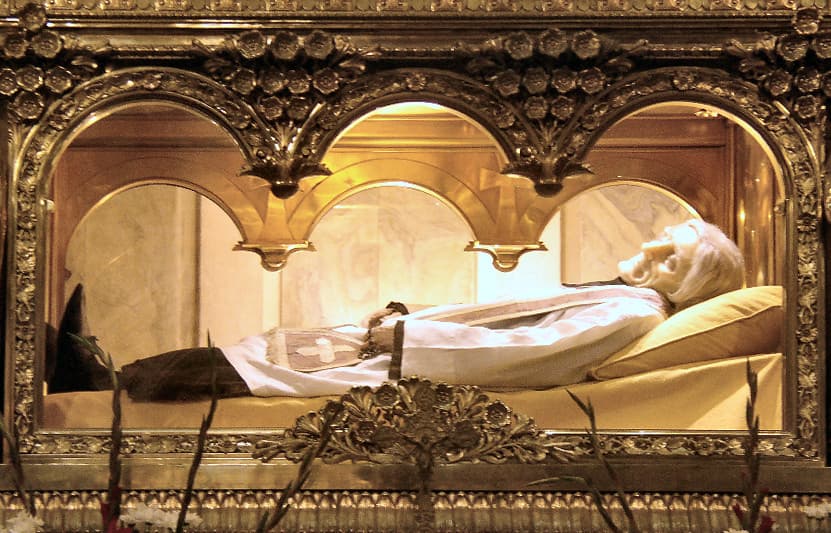The spiritual life is enriched by several wellsprings. The Church nourishes and promotes these spiritual wellsprings and encourages the faithful to use them as they seek to draw closer to God.
The wellsprings include the written Word of God and the Church’s sacred liturgy. In addition, the wellsprings include faith, hope, and love, which are the three central virtues of the Christian way of life. These virtues are called the theological virtues since they possess a supernatural expression that deals directly with our relationship with God, which is Theos in Greek.
The Catechism of the Catholic Church describes these powerful virtues, which are infused in us through holy baptism.
In teaching about faith, the Catechism explains: “One enters into prayer as one enters into liturgy: by the narrow gate of faith. Through the signs of his presence, it is the Face of the Lord that we seek and desire; it is his Word that we want to hear and keep.”
Theological faith is the gift by which we can believe in God on his own terms. It is accepting God’s own witness of himself and discerning his words and deeds on their own merits. Theological faith is not easy, which is why a special endowment of this virtue is given to us in baptism to help us. By exercising theological faith, we can persevere in our desire to see God and know of his presence.
In teaching about hope, the Catechism explains: “The Holy Spirit, who instructs us to celebrate the liturgy in expectation of Christ’s return, teaches us – to pray in hope. Conversely, the prayer of the Church and personal prayer nourish hope in us. The psalms especially, with their concrete and varied language, teach us to fix our hope in God: ‘I waited patiently for the LORD; he inclined to me and heard my cry.’ As St. Paul prayed: ‘May the God of hope fill you with all joy and peace in believing, so that by the power of the Holy Spirit you may abound in hope.’”
Theological hope is not a trust or anticipation for the things of this world, but for the things of eternity. It directs our attention to eternal life. Theological hope shifts our attention from the things of this passing world to the everlasting things of heaven.
In teaching about charity, the Catechism explains: “’Hope does not disappoint us, because God’s love has been poured into our hearts by the Holy Spirit who has been given to us.’ Prayer, formed by the liturgical life, draws everything into the love by which we are loved in Christ and which enables us to respond to him by loving as he has loved us. Love is the source of prayer; whoever draws from it reaches the summit of prayer. In the words of the Cure of Ars:
“I love you, O my God, and my only desire is to love you until the last breath of my life. I love you, O my infinitely lovable God, and I would rather die loving you, than live without loving you. I love you, Lord, and the only grace I ask is to love you eternally…. My God, if my tongue cannot say in every moment that I love you, I want my heart to repeat it to you as often as I draw breath.”
Theological love is the strength we need to love God in and above all things. Our fallen nature wants to love and settle for the things of our world. We want to compromise the depth of the love we are able to give as the children of God. We replace true love with pleasure, euphoria, and egotism.
Theological love, however, breaks through these clouds and inclinations and leads us to the fullness of love. It shows us the Face of God. Theological love corrects and matures our love. It helps our love to flourish. Theological love teaches us that real love, a love that touches the core of our hearts, begins with a love for God and flows from there.
It’s only when we respond to God’s love for us and begin to love him with all our minds, hearts, and souls that we can know what love truly is and how we are called to love those in our lives.
The three theological virtues of faith, hope, and love are a great help and wellspring for us as we desire to grow in the spiritual life and nurture a relationship with God.















